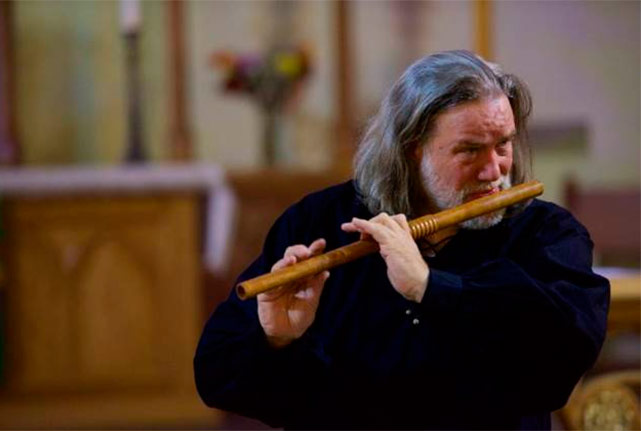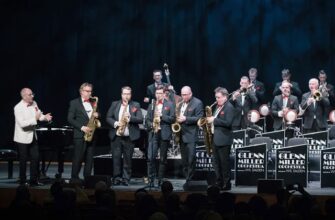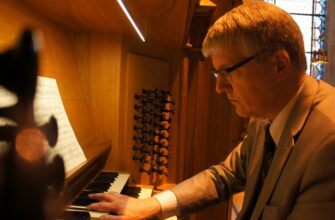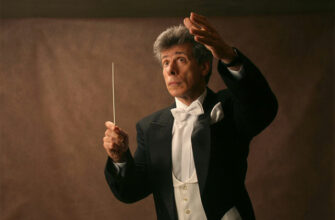Interesting musical experience awaits lovers of classical music in Moscow on 09-16 Oct 2016. The boundaries between the earthly and the heavenly, the Church and society will be represented in project Musica Mensurata (it is translated as “measured music”). The term implies a “polyphonic music, or paraliturgies, sometimes secular”. The event is supported by the German Goethe Institute in Moscow.
In the Cathedral of Peter and Paul musicians from Russia and other European countries for the third consecutive year will recreate the music of X-XIV centuries in the form how it was played to medieval listeners. The implication is that the creations are played according to old manuscripts, rare instruments are utilized as follows: wiely, citole, harp, transverse flute, etc. Singers chant in ancient languages: from medieval Latin to middle high German.
Below You can get acquainted with the idea of the festival from the mouth of its artistic Director Daniel Ryabchikov, who told about the previous festivals and the current expectations in interview to “E Vesti”.
E Vesti: You manage festival for the third time. How were the first two ones, are You and your partners satisfied with the influence of music on listeners?
Danila Ryabchikov: You know, the first festival was conceived as a single phenomenon. The continuation was not planned. But that’s exactly the reaction which forced us to continue. Audience fished every movement of the music and words, it convinced of the need for such continuations. The concert Carmina de morte, where we performed musical reflections on the death by the authors of 12-13 centuries, it is not minor, and often has light, but it is always intimate and introverted for the most part, the audience booed for applauding between numbers. Because the applause interfered with the immersion, sensitive to the atmosphere of the concert. Such attention and such a dialogue through music is worth it.
E Vesti: How do You think, is this music clear for the person passionate about classical music, but not professional, I mean musical language of X-XIV centuries, especially authentic sound of early middle ages?
Danila Ryabchikov: There is a little works of early middle ages, most of them belongs to the era of the High middle Ages, one of the peak in development of vocal music in General. The music of this period is good , for example, it allows us to rethink the foundations of the music world that seem immutable axioms. That music is unthinkable without the bass like voice and as a function of the unit of measure – note, and that in General there is the idea of counterpoint (note-against-note) and the harmonic vertical (polyphony 12-13 centuries, for example, including very complex – arranged for other canons) or that there is mandatory binary division of notes (Pierre de La Croix brevis from 2 to 7 is often divided, and the Trinity division, and all was normal). And all these things happened not from inability, like reverse perspective in Byzantine iconography, it was from the other axioms, other parcels from different expectations from music. The authors of the time believed that music is, including, and ethical function: it can heal, to instruct, to exhort, to encourage, to give hope. And all this can be perceived without the study of theory and professional occupations medieval music. Enough to be open to wonder and new experiences.
E Vesti: What, in Your opinion, the old European sacred music carries and how it is relevant for a Russian audience today?
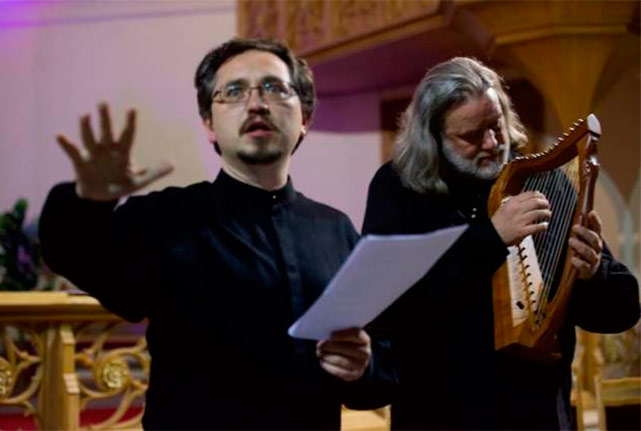
Danila Ryabchikov: I partially answered this question above. On the other hand, if we talk about the music of the High middle Ages, I don’t think there is any difference from the other high achievements of musical art. We may not have any direct links, but this does not prevent us to enjoy the music of Bach or North Indian ragami, does not prevent them to influence our lives. In General, if you just slightly rephrase Tyutchev, the case of the music is “clear heart language to harp on obscure pain” to refer to the damned questions about life, love, limitation and death, which are themselves unchanged for centuries and only dressed in different words and sounds.
E Vesti For the first time in Russia will sound songs of the XII century by Saint Hildegard von bingen … What other surprises do You prepared for listeners?
Danila Ryabchikov: I really hope that some of the works of St. Hildegard have already been represented in Russia. A feature of this concert will be, first of all, the music sound in the best of possible historical performances. At second, this will be music from Dendermonde manuscripts compiled during his lifetime and under the supervision of Hildegard herself. It is certainly not the first female composer, but certainly one of the first composers who supervised and watched the recording of his music. That is the closest possible the testimony of St. Hildegard.
In addition to the concert of St. Hildegard music we’ll enjoy with “the wizard” Norbert Rodenkirchen and his program “Minstrel in Paris” – the reconstruction of instrumental practice of 13 century in France and Ensemble Labyrinthus with love lyrics of 12-13th centuries, in Latin! The program is associated with the names of Abelard and Eloise, in addition to their love story and celebrity of Abelard as a philosopher, they probably both were composers and poets, and their music will be performed in this concert together with music by unknown authors – their contemporaries. We are also waiting world premiere of the work of 9 (!) century music by the poems of the famous eclogue of Virgil, which says that Omnia vincit amor (love conquers all).
